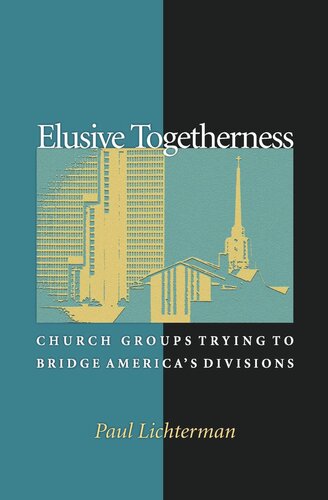

Most ebook files are in PDF format, so you can easily read them using various software such as Foxit Reader or directly on the Google Chrome browser.
Some ebook files are released by publishers in other formats such as .awz, .mobi, .epub, .fb2, etc. You may need to install specific software to read these formats on mobile/PC, such as Calibre.
Please read the tutorial at this link: https://ebookbell.com/faq
We offer FREE conversion to the popular formats you request; however, this may take some time. Therefore, right after payment, please email us, and we will try to provide the service as quickly as possible.
For some exceptional file formats or broken links (if any), please refrain from opening any disputes. Instead, email us first, and we will try to assist within a maximum of 6 hours.
EbookBell Team

4.0
56 reviewsMany scholars and citizens alike have counted on civic groups to create broad ties that bind society. Some hope that faith-based civic groups will spread their reach as government retreats. Yet few studies ask how, if at all, civic groups reach out to their wider community. Can religious groups--long central in civic America--create broad, empowering social ties in an unequal, diverse society?
Over three years, Paul Lichterman studied nine liberal and conservative Protestant-based volunteering and advocacy projects in a mid-sized American city. He listened as these groups tried to create bridges with other community groups, social service agencies, and low-income people, just as the 1996 welfare reforms were taking effect. Counter to long-standing arguments, Lichterman discovered that powerful customs of interaction inside the groups often stunted external ties and even shaped religion's impact on the groups. Comparing groups, he found that successful bridges outward depend on group customs which invite reflective, critical discussion about a group's place amid surrounding groups and institutions.
Combining insights from Alexis de Tocqueville, John Dewey, and Jane Addams with contemporary sociology, Elusive Togetherness addresses enduring questions about civic and religious life that elude the popular "social capital" concept. To create broad civic relationships, groups need more than the right religious values, political beliefs, or resources. They must learn new ways of being groups.